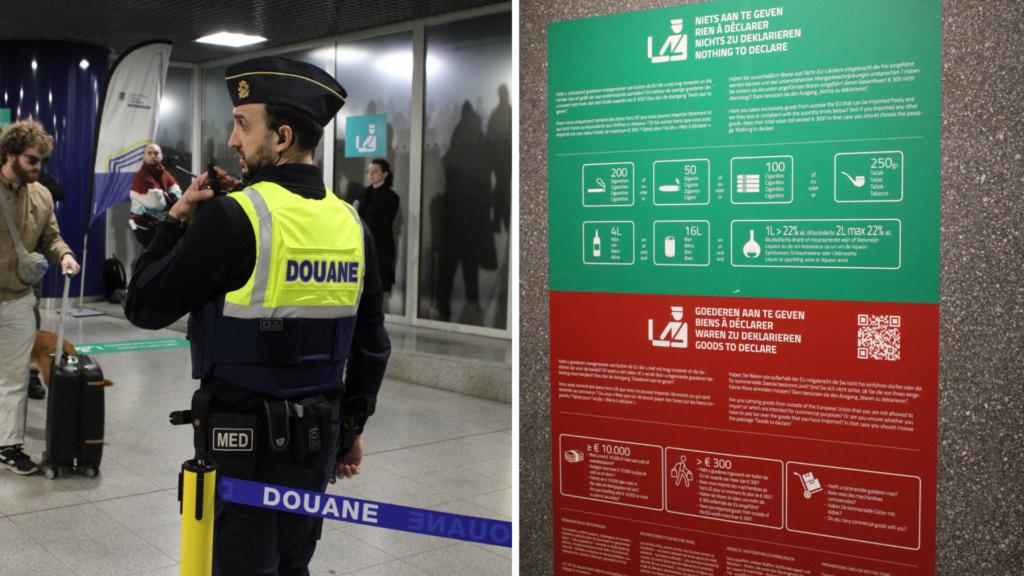Very few passengers who take the train between Brussels and London are aware of customs checks and stricter rules that apply to items bought in the United Kingdom, despite numerous warnings.
The UK's withdrawal from the EU might be old news but the international rail operator Eurostar and Belgian authorities still need to remind passengers of the customs checks. Checks at the Eurostar terminals often seem more of a formality at times but when imposed strictly, many fall foul of the restrictions on goods.
Despite warnings, many passengers are less mindful of the distinction between shopping in London and in Paris or Amsterdam.
"Every day we see passengers are still unaware that the Brussels-Midi railway station is now an EU border," general administrator of customs Kristian Vanderwaeren told The Brussels Times during a press event.
"People still travel with plants and fruit, which cannot be brought into the EU. Others buy expensive things and then find out they have to pay taxes on it upon arrival."
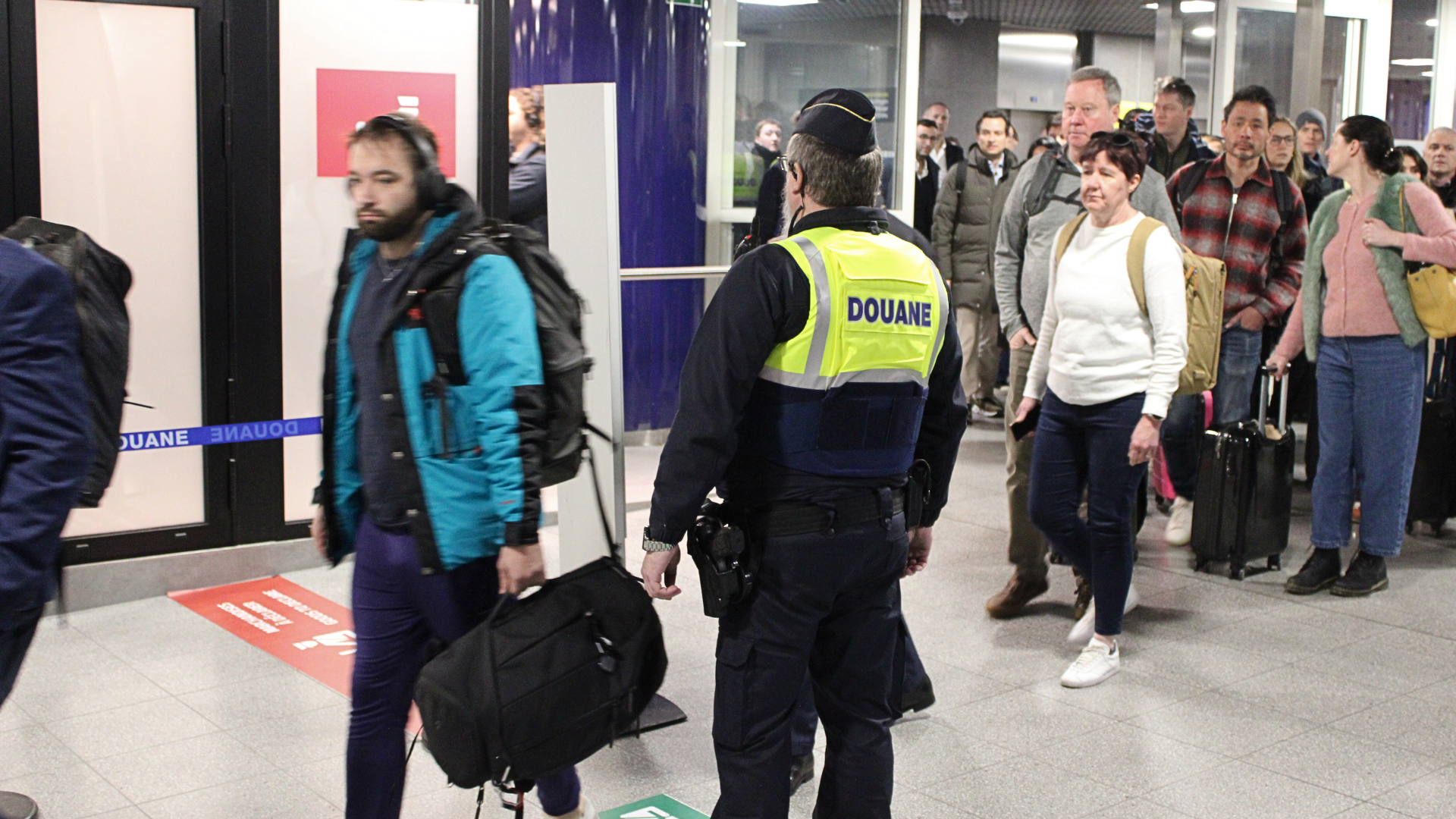
Passengers from London passing through customs. Credit: The Brussels Times
Nothing to declare?
As is the case at Belgium's airports, travellers arriving at Brussels-Midi station can choose to ‘declare nothing’ (following the 'green lane') or ‘declare goods’ (the 'red' lane). With local media awaiting the arrival of the 10:00 train from London, no passengers chose the red lane. This is not uncommon, customs officers said.
Passengers were surprised by the drug and cash dog checks and being pulled aside to have their luggage checked. "I was not aware I would be checked. I also assumed the rules on purchases were the same as in airports," Nicole told The Brussels Times while her luggage was being checked. "I feel a bit embarrassed as my suitcase is very messy." Luckily, the stricter rules do not penalise disorganised packing.
"I am also worried about getting my connecting train to the Netherlands." Aside from the hold-up for people pulled aside, the dog checks delay passengers slightly. Eurostar warns passengers on its website to allow at least 30 minutes to make an onward train.
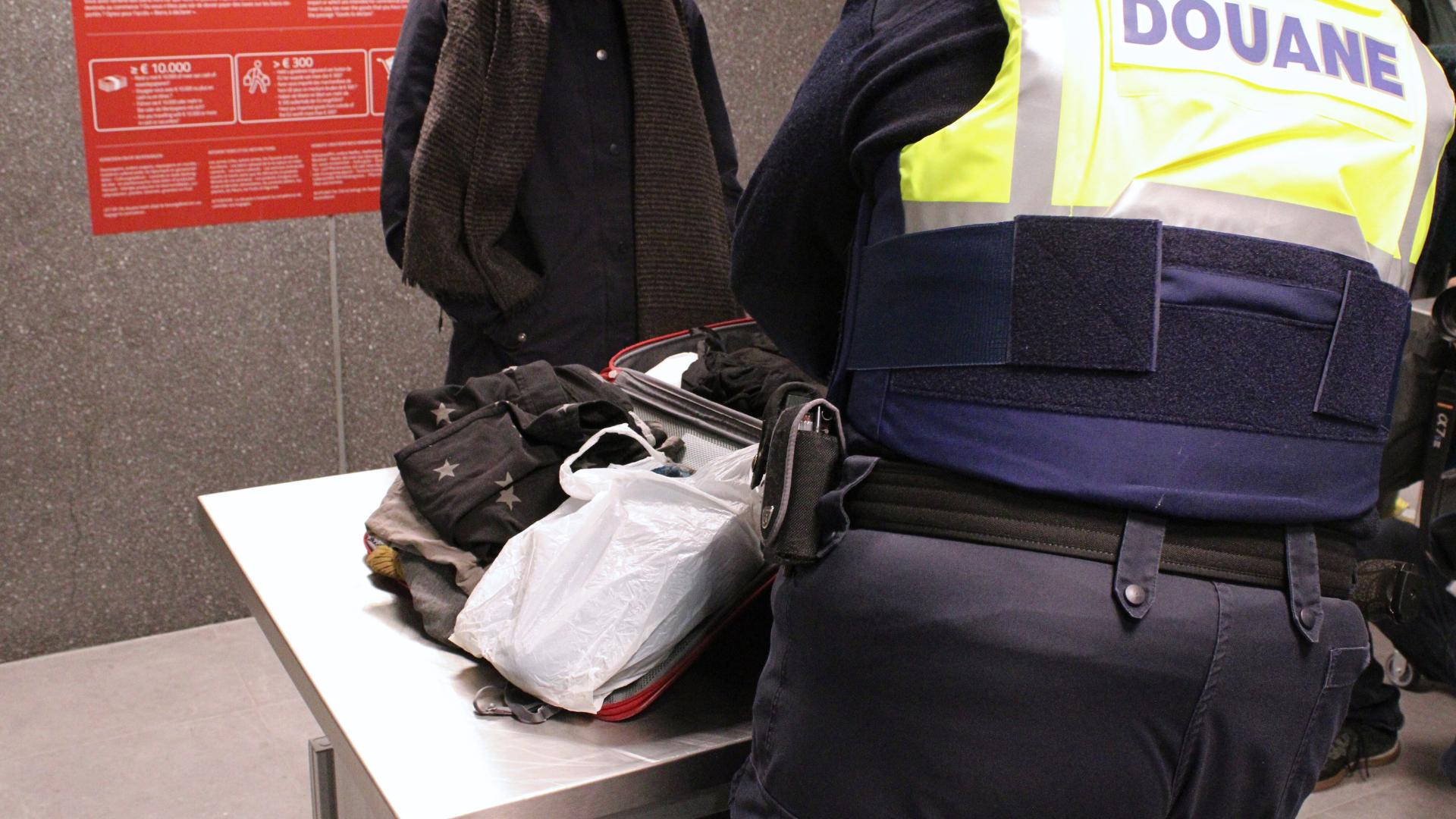
A suitcase being checked by a customs officer at Brussels-Midi. Credit: The Brussels Times
Shauny, who has worked as a customs officer at Brussels-Midi for six years, confirmed that few people are informed about the rules. "But these have been in place for some years now. It is up to passengers to be informed." Customs officers regularly give passengers informative pamphlets.
Not all passengers are as cooperative as Nicole. "Sometimes the frustration about being stopped escalates and we have to intervene."
What are the rules?
Anyone who buys goods worth more than €300 (€150 for under 15s) in the UK must declare them. This is lower than the limit of €430 for those who reach the mainland by boat or aeroplane.
For tobacco products, the maximum that can be exempt from taxes is set at 200 cigarettes, while for the purchase of alcohol, anything over one litre of alcohol over 22% ABV (like gin or vodka) must be declared. Passengers can bring four litres of wine and 16 litres of beer through the 'green lane'. Customs must be notified of any cash amounts over €10,000 (or the equivalent amount in another currency).
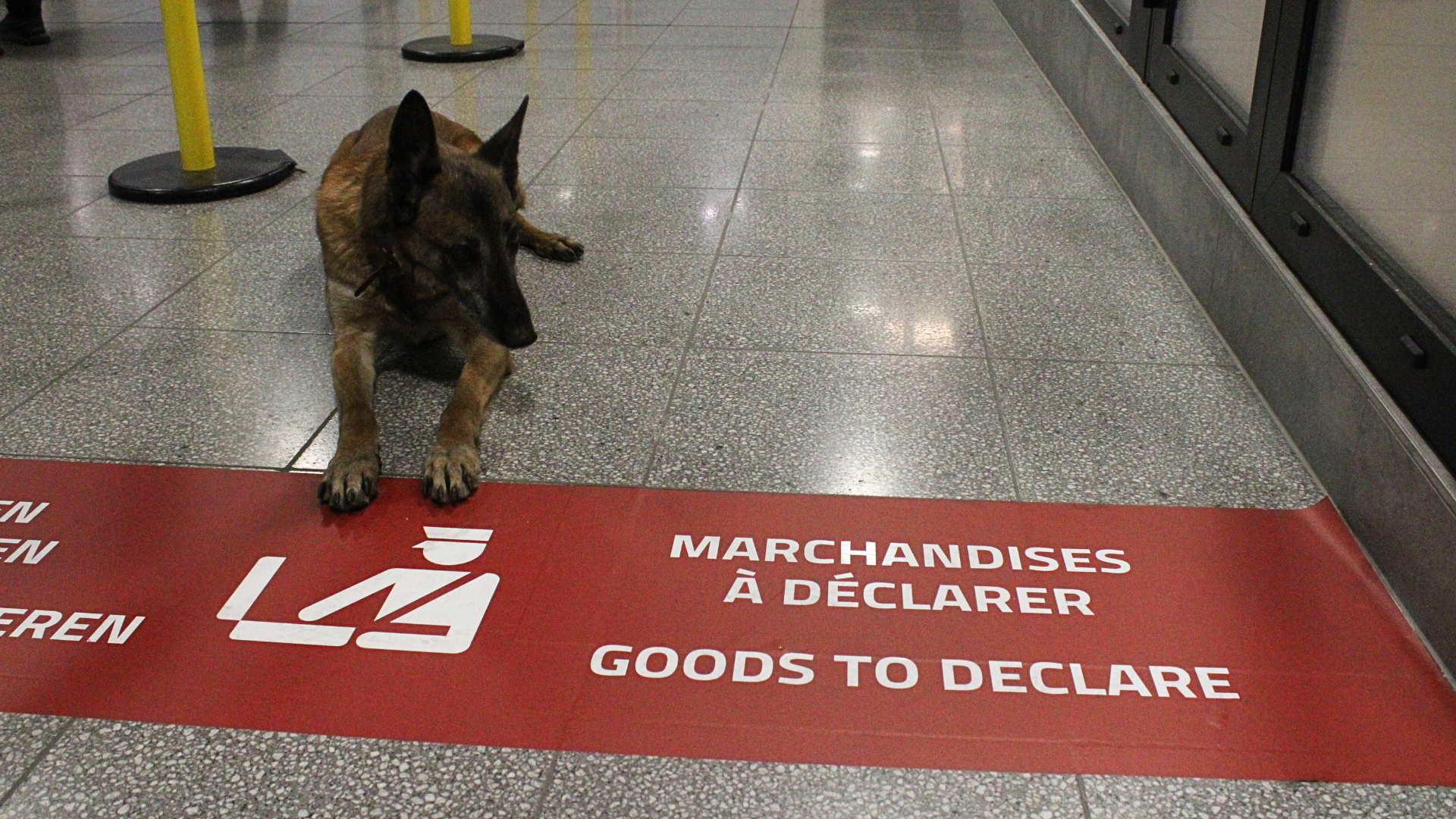
Blondie the sniffer dog lying by the 'red' lane. Credit: The Brussels Times
Meat (or products containing meat), milk or dairy products are also cannot be taken into the EU. Some types of souvenirs are also prohibited, as are items that damage the environment, such as products made of ivory or coral. Cheap counterfeit goods will also be seized in Belgium.
Declaring these purchases means paying the duties and taxes. Duties are based on the total value, including the VAT that was already paid upon purchase in the UK. If the goods are not voluntarily declared, a fine will be added. In the case of cash amounts surpassing the maximum limit, passengers have to pay €1,000.
Seizing drugs and cash
The chance of getting caught is relatively small: Finance Ministry figures show almost 9,000 people were checked upon arrival at Brussels-Midi in 2024 (6,400 from the UK) and violations were found in around 235 of these cases (133 from the UK).
"The number of people intercepted and fined is not extraordinary but for those who suddenly have to pay taxes and a fine, it would be a bad end to a city trip," said Vanderwaeren.
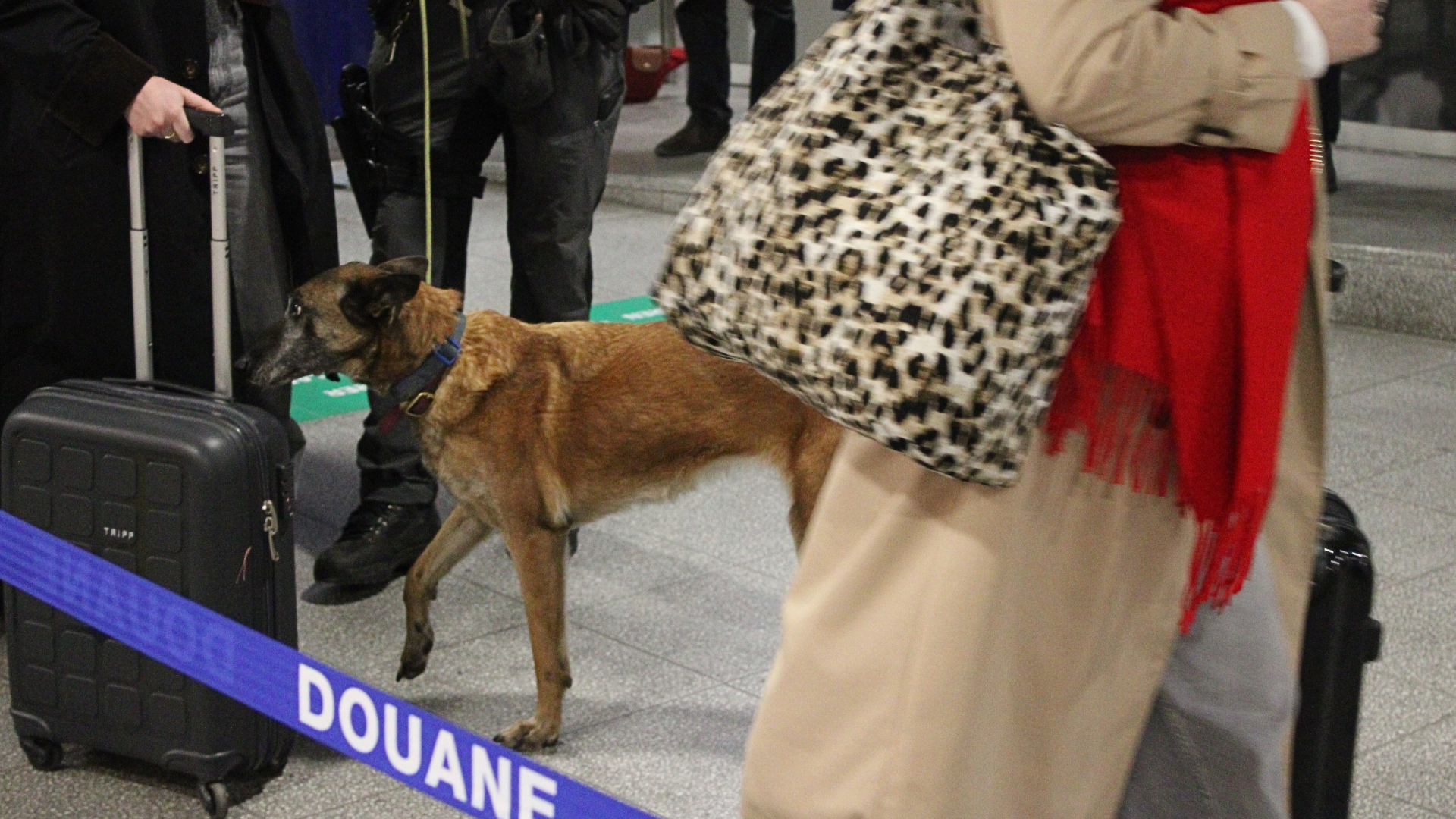
Blondie the dog sniffing arriving passengers. Credit: The Brussels Times
As well as failing to declare goods (including food and plants or surpassing the €300 limit), some people are caught bringing cash and drugs into the EU. The customs dog regularly smells drugs or large amounts of cash. "It's often when people smoked weed the day before, especially when coming from the Netherlands, but don't have drugs on them. We also seize hard drugs following checks," Shauny said.
If people are caught with large amounts of cash and appear suspicious, the money is taken and handed to the Public Prosecutor's Office for investigation, usually into money laundering. The dog is trained to detect all types of currencies, from euros and pounds to Chinese yuan. Seized plants and food are destroyed.
Meanwhile, passengers travelling from the EU to the UK will need an Electronic Travel Authorisation (ETA) from 2 April. Applications for this travel document opened on Wednesday 5 March.

